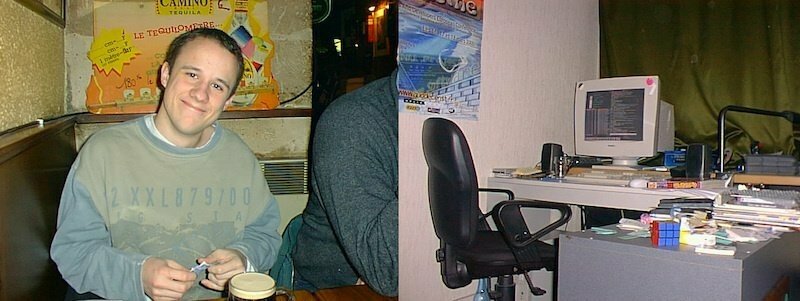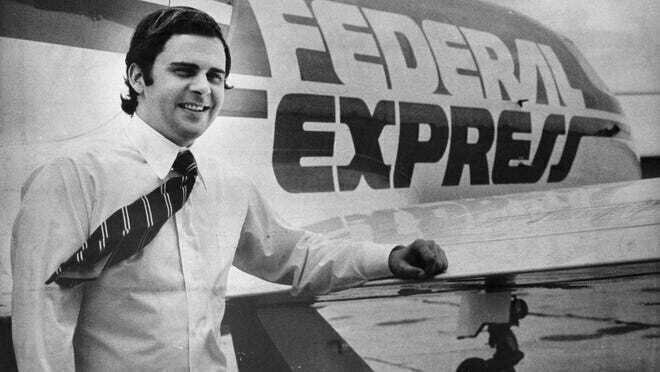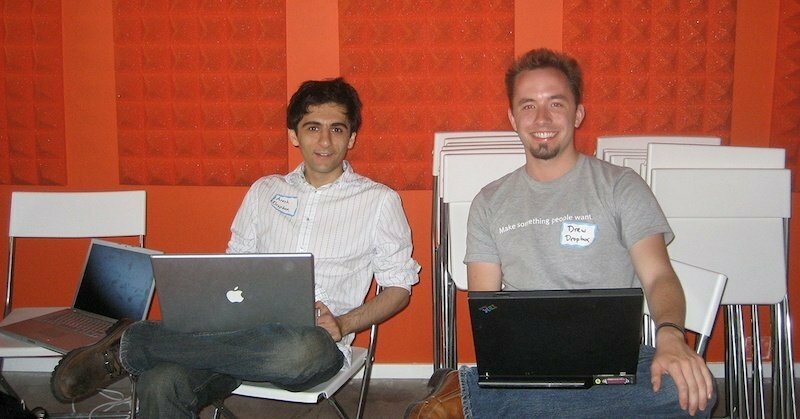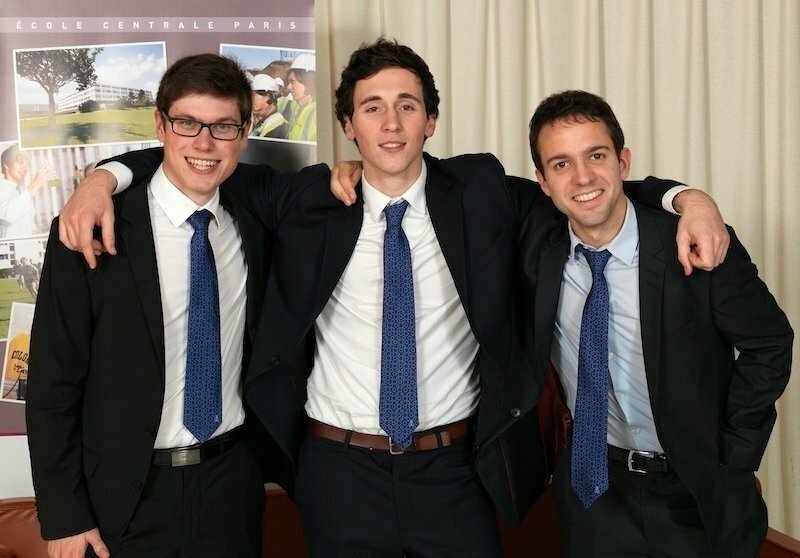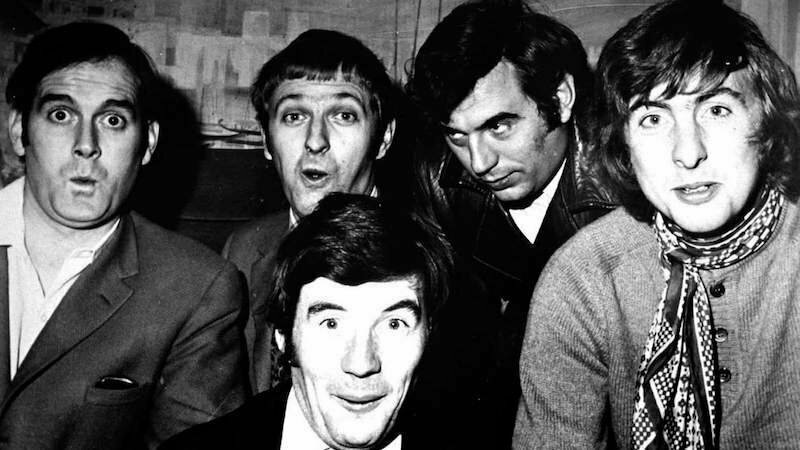From classroom to boardroom: 5 student projects turned business success stories
04. 1. 2021 - aktualizované 26. 8. 2024
5 min.

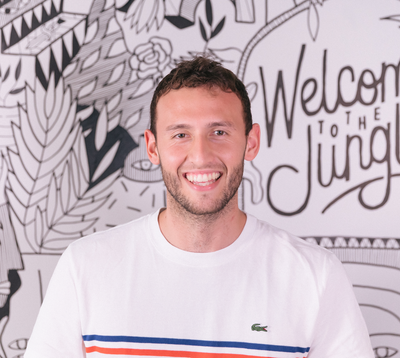
Journaliste
In life, things take time. As a child, you crawl before you start to walk—and then run at full speed. You begin to talk before you learn to read and write. Then, as you get older, you go to school and perhaps even on to university before starting to work full-time. But sometimes an opportunity, an unexpected success, or simply the desire to do something can take you away from the standard path and onto one where these stages of life overlap or mix. This is what happens, for example, when a student decides to become an entrepreneur while still in college or to continue a project that was part of their course in a professional setting.
We’ve selected five entrepreneurial success stories that you might be surprised to hear began as student projects. And we promise that Facebook is not on the list.
1. VLC: Revenge of the geeks
Samuel Hocevar, one of the students behind the project, in 1998, and the computer on which he started to develop VLC.
This story starts in France. Surprisingly, one of the most downloaded software in the world—with more than three billion downloads since its creation—is French. It was created by students at the Ecole Centrale, which was one of France’s oldest and most prestigious engineering schools.
In the early 1990s, students completely and autonomously ran Ecole Centrale’s Chatenay-Malabry campus in Paris. It was the beginning of online video games and the college’s apprentice engineers were big fans, to say the least. But the campus network wasn’t powerful enough for them to play as much as they wanted. They tried to convince the school to install a more powerful network, arguing that it was necessary for them to do their coursework, but the administration would not pay for it. So, faced with a lack of financial resources, they had no choice but to develop their own video playback software with low connection requirements, and VLC—was born.
For about 10 years, different volunteers managed the software, year after year. But VLC’s future was fragile. Despite its success with students, there was the constant threat that it would be shut down permanently. While the students had tried to create a real structure around their innovative software in the early 2000s, it was only in 2008 that external, professional contributors joined the project, which would later become a worldwide success as a free open-source media player software.
2. FedEx: Why you shouldn’t always listen to your professors
Fred Smith, founder of FedEx.
This is probably what Fred Smith, the founder of the American freight forwarding giant, is saying to himself today. In 1962, when he was a student at Yale University, he wrote his first paper on his revolutionary delivery service project for an economics exam. It was the first step to create what would later become Federal Express, better known as FedEx, now a behemoth that employs more than 400,000 people worldwide. However, legend has it that his paper earned him only a C grade, as his professor believed the project would be “difficult to carry out.” It’s hard to know whether the professor’s assessment was flawed or whether FedEx’s success is mainly due to Smith’s desire for revenge.
In any case, the moral of this story is that you should never give up, even when things seem to be going wrong, and that success sometimes comes thanks to the power of perseverance. Oh no! Does this make you regret abandoning your dream of becoming a writer after you failed a spelling test at school?
3. Dropbox: Opportunity is everywhere
Arash Ferdowsi and Drew Houston, co-founders of Dropbox.
It’s not surprising that the idea for this file-sharing and storage software was born in the mind of its co-founder, Drew Houston, when he was still an MIT student, given his gift for working with computers. Houston proved early on that he was a bit of a genius at code, so much so that he had his first professional experience at the age of 14. Before creating Dropbox in 2008 with co-founder Arash Ferdowsi, he had already worked in five different start-ups, all while still in college. But his greatest success remains undoubtedly the brand with the little geometric logo representing a cardboard box, which has experienced phenomenal growth. It entered the stock market in 2018, just 10 years after its creation. It is now worth billions.
The story begins with Houston, a strong student, often way ahead of his classmates, yet always with his head in the clouds. In fact, it was this little quirk that led to the creation of Dropbox. One day, Houston set out on a four-hour bus journey. There were only a few weeks to go before graduation and he had been planning to use his time on the trip to code. Then he realized that he had left his USB drive at home.
Unable to do his work, he came up with the idea of a platform that would free its users from the need to use physical storage space. Barely four months after that fateful bus trip, Houston flew to San Francisco to pitch his project to Paul Graham, a renowned computer scientist and investor. The rest is history.
4. Privateaser: Work hard, party harder
Raphaël Kolm, Nicolas Furlani and Alexandre Paepegaey, co-founders of Privateaser.
This is yet another concept born in the minds of students at the Ecole Centrale. When Raphaël Kolm and Alexandre Paepegaey, two of the co-founders, met, they were both class delegates and were responsible for organizing events for their classmates. However, they had a hard time finding good locations that were available and reasonably priced. At the time, most of the spaces available for this type of event were party venues or concert halls, which sometimes had to be rented far in advance.
Rather than waiting months to throw a party, they dreamed up a digital platform where bars and restaurants could be booked quickly and easily. Luckily for the two friends, they were taking a class in entrepreneurship at the time. So they decided to develop their concept by going to meet potential partners and clients. The feedback was particularly positive, so they decided to launch their start-up after graduation along with Nicolas Furlani. Sometimes the need to party can lead you to doing great things.
5. Monty Python: A funny English tale
The Monty Python gang in the early days.
Before becoming one of the most iconic troupes of the 20th century, the members of Monty Python were students destined for more traditional careers. Three of the founding members, who were studying medicine, law, and English at Cambridge University at the time, joined the Footlights Dramatic Club, a student-run sketch comedy club. While each had their own reasons for joining, the story of the enrollment of John Cleese reflects the tongue-in-cheek style that helped them to become adored comedians.
After he had arrived in Cambridge to study law, he toured the registration booths of the various extra-curricular clubs that were looking for new student members and was drawn to Footlights. They asked him if he could sing or dance. He later explained what happened next: “I said no as I wasn’t allowed to sing at school because I was so bad, and if there is anything worse than my singing, it is my dancing.” A little surprised, the members then asked him what he could do. Cleese replied, without batting an eye: “I make people laugh.” It was during the Footlights’ world tour, which included a stop in New York, that they met Terry Gilliam, the only American member of Monty Python. The tour’s success then opened doors to the world of entertainment and got them hired by the BBC to work on a satirical show, The Frost Report, when Eric Idle, the youngest of the team, was only 23 years old. The troupe was finally complete when Michael Palin and Terry Jones joined, both former Oxford University students.
As you can see, sometimes success happens when you least expect it. Some people talk about luck, but according to an old Indonesian healer in Laurent Gounelle’s The Man Who Wanted to Be Happy, “There are no lucky people, only those who see opportunities and those who don’t.”
Who knows, even if you’re still a student juggling classes, internships, and exams, the coming months may hold a spark, a sign, an encounter, or an idea that will be the foundation of your future professional success or entrepreneurial project. So keep your eyes open and pay attention—because even in times of crisis, innovation is possible. Creativity is often born out of constraint.
Translated by Kalin Linsberg
Photo by Thomas Decamps for Welcome to the Jungle
Follow Welcome to the Jungle on Facebook, LinkedIn, and Instagram, and subscribe to our newsletter to get our latest articles every day!

Viac inšpirácie: Inspiring profiles for students
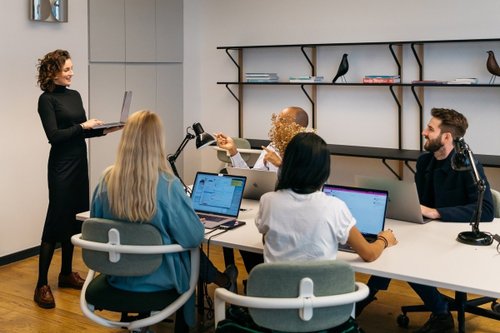
Starting at a startup: an expert’s advice for success early in your career
Thinking of taking up a job at a startup? Our expert, serial entrepreneur Ben Prouty shares his best advice for making the most of it from day one!
14. 9. 2021
Novinky, ktoré to vyriešia
Chcete držať krok s najnovšími článkami? Dvakrát týždenne môžete do svojej poštovej schránky dostávať zaujímavé príbehy, ponuky na práce a ďalšie tipy.

Hľadáte svoju ďalšiu pracovnú príležitosť?
Viac ako 200 000 kandidátov našlo prácu s Welcome to the Jungle
Preskúmať pracovné miesta
